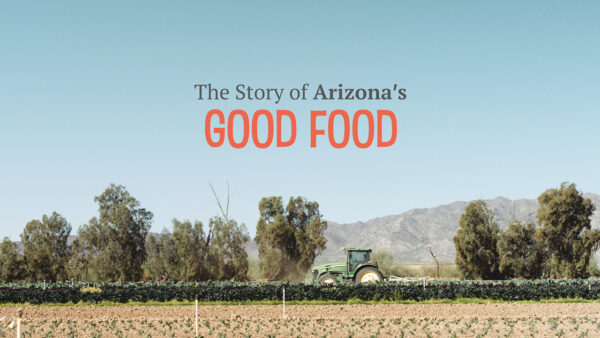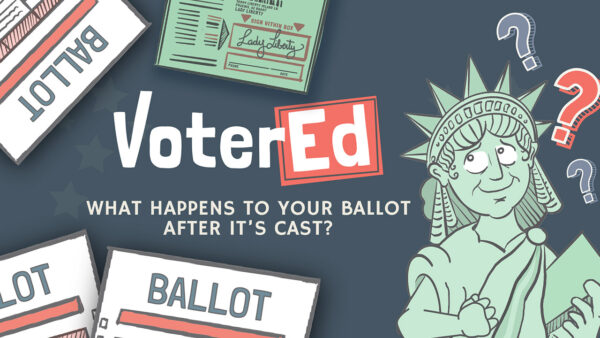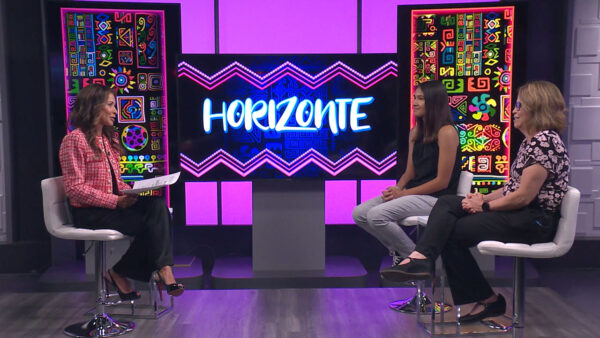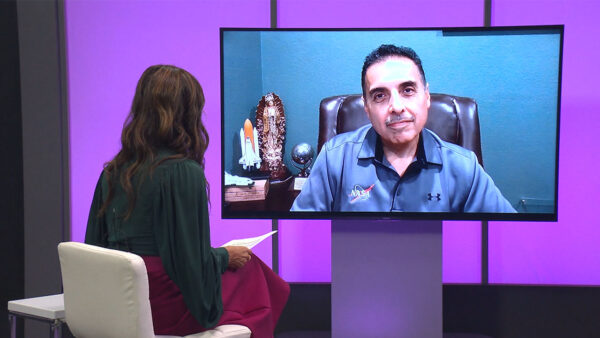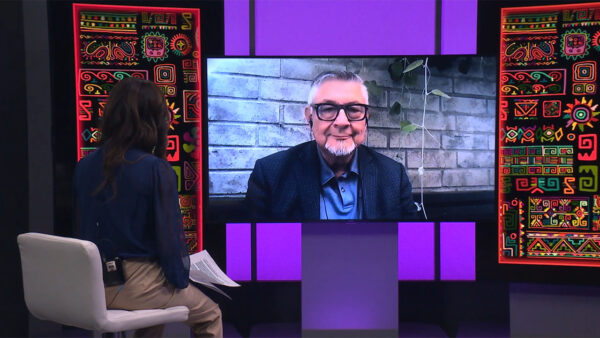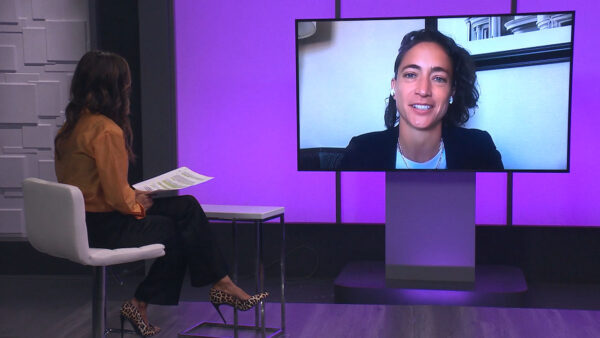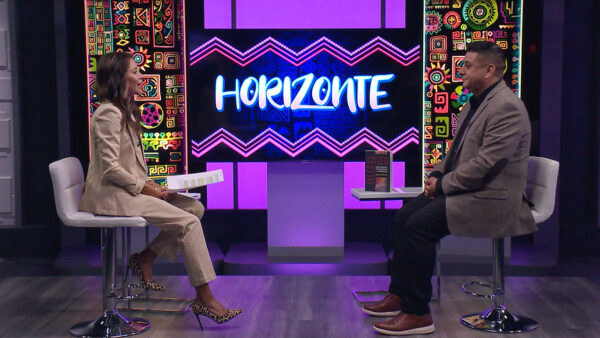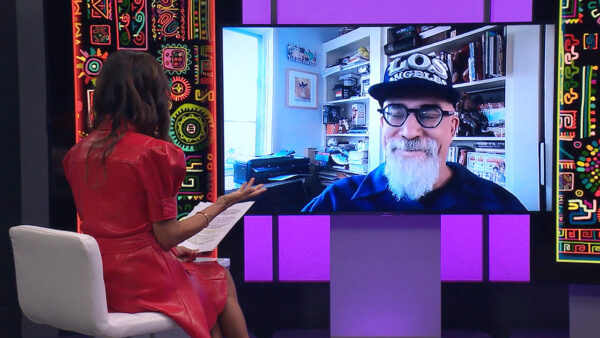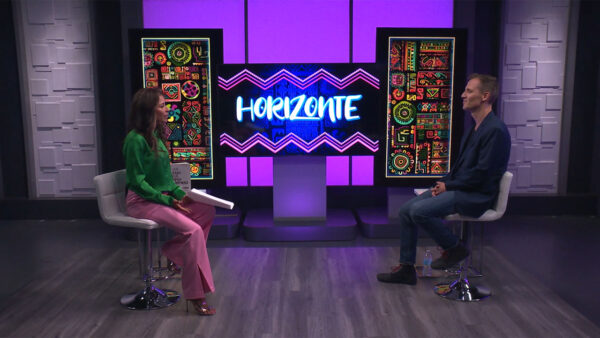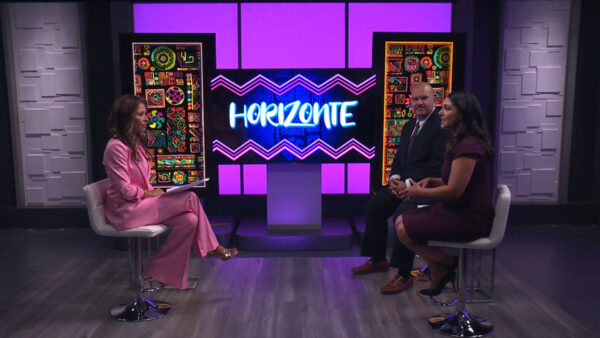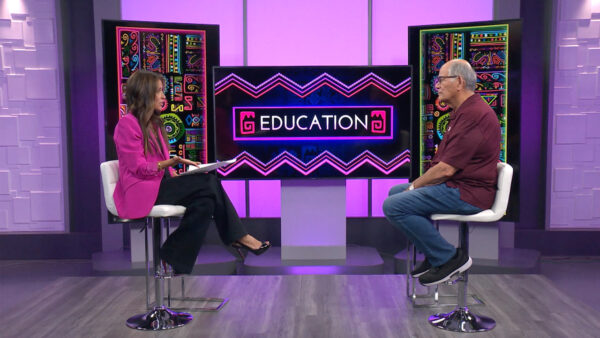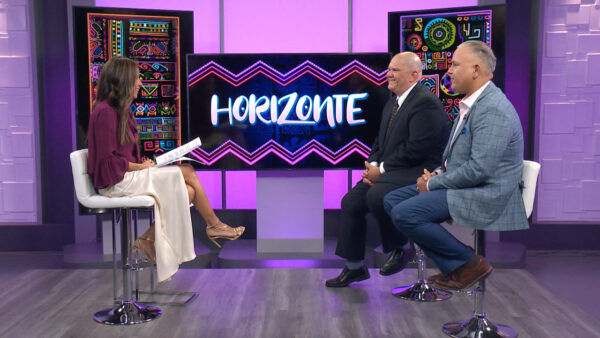There is a new initiative led by the Arizona-Mexico Commission to assist immigrant students who have gone to Arizona schools and who need help on their return to Mexico. The goal is to simplify the process for Arizona and Sonora students by validating some records electronically. Deputy Associate Superintendent for the Arizona Department of Education, Ralph Romero, discusses the initiative.
Jose Cardenas: There is a new initiative led by the Arizona-Mexico commission to assist immigrant students who have gone to Arizona schools and to help them on their return to Mexico. The goal is to simplify the process for Arizona and Sonora students by validating some records electronically. Joining me to talk about this initiative is Ralph Romero, deputy associate superintendent for the Arizona department of education. Welcome to "Horizonte." You've been here before. This is an initiative, the chair the education committee; give us the background for this process and why it was something that needed to be fixed.
Ralph Romero: This issue came up about five years ago, six, seven years -- About 5 years ago. The problem that was identified is that students when they leave Arizona schools are -- Or schools in the United States in general, and they arrive in schools in Mexico, they require Mexican schools require that the records contain a notarized statement from the state indicating that those records are authentic. That requirement is part of the Hague Agreement that was signed in 1961--
Jose Cardenas: An international treaty.
Ralph Romero: An international agreement. The problem is that many students that leave Arizona and go back to Sonora or other states, or other states in the United States and go back to Mexico, many times leave, don't know about the requirement for the document, they arrive in a Mexican school, and they are not admitted, especially if they're going into a prepatoria, Which is considered the first three years --
Jose Cardenas: Like a prep school here.
Ralph Romero: It's 10th, 11th, and 12th. That's where the problem existed. So many students that arrive in Sonora schools, our neighbor to the south, and other states, were not allowed in school because they did not have the documents.
Jose Cardenas: Just to be fair, it's a very formal diplomatic process for certification of records as authentic.
Ralph Romero: That's correct. The entity in the states that gives the document is the secretary of state's office. So a student literally needs to get a record from the school, take it to the secretary of state's office, and then get an apostille fixed before they leave the state, when they arrive in a school, they will ask for the record with the apostille. If there's no apostille they will not be enrolled in school.
Jose Cardenas: So the process, which would take some time even if they were here, becomes almost impossible when they're back in Mexico and have no way to get back here to pursue the certification.
Ralph Romero: That's correct. And that's what the problem is. Many students actually gave up, they dropped out of school, because they were not able to get the records in time for them to register for that current year. Once you lose one year, they potentially lost out on schooling in general.
Jose Cardenas: Give us a sense of the magnitude of the problem. I know it was with the advent of the economic downturn and SB 1070, we had a lot of families leaving Arizona, some of them going back to Mexico. But specifically in the state of Sonora how many kids are we talking about?
Ralph Romero: They believe there's about 10,000 students from Arizona that return to Sonora over the past five years.
Jose Cardenas: And many of these would be students facing this precise difficulty.
Ralph Romero: Exactly. Especially those kids that were going from high school into prepatoria.
Jose Cardenas: Let's talk about the solution that you're commit -- That your committee and others have worked on.
Ralph Romero: What we did, after discussing the issue both educator from Sonora and Arizona and discussing the issues with the U.S. department of education in Washington and in Mexico city, we discovered that there was language in the Hague Agreement that basically gave the state the authority to implement an alternative system for the apostille. At that time the problem was getting Mexico to agree to do that, and to some extent the United States government also to agree to that because of the FERPA requirements, the Federal Responsibility and Privacy Act, which controls the confidentiality of records.
Jose Cardenas: Student records.
Ralph Romero: Student records. Once we got the two governments, federal governments to agree, which was just a few months ago, we were able to then put together a team to develop an electronic transfer system which basically will allow a student to request a record from the secretary, who then makes an electronic request of the Arizona department of education, the Arizona department of education will make an electronic request of the appropriate school in Arizona, and then the record will follow the same route.
Jose Cardenas: Now that's when it's all set up. But you're starting with a pilot program. Why don't you describe that.
Ralph Romero: Yes. We decided we would pilot this program for no more than six months because this is a first, this is the first program process in the United States. We did not -- We wanted to make sure we didn't jeopardize the confidentiality of student records both in this state and across the country by releasing a process that had not been tested.
Jose Cardenas: How are you going to do that?
Ralph Romero: We have a high school which -- Here in Arizona, Yuma High School, which has agreed to pilot this program for us in conjunction with the secretary. We will pilot the system, we will have individuals that need these records go to Sonora, we'll make the request of the origin, and see how this process works out.
Jose Cardenas: And how are you making it known to people? I assume in some respect it's self-executing, somebody goes to school in Mexico and they're told they need this, and hopefully the people will know to make the request of the schools in Arizona.
Ralph Romero: We will be informing the schools in the state to ensure that students and parents who come in requesting their records for transfer down into Sonora, that they be made aware of this new process. We also intend to engage the Mexican consulate to make sure that they know, so they can notify parents and students who come to their office for this type of information. And at the same time also Sonora is doing the same thing. They're going to their schools and notifying them of this new process --
Jose Cardenas: So there's an outreach process. We're almost out of time. When does this kick off?
Ralph Romero: This will kick off soon after the gypping of the school year, I would say probably within the next month.
Jose Cardenas: And hopefully within a year --
Ralph Romero: I would think within six months we should be in a position to determine if there are any problems with the system, and if there are none, then we will implement it statewide and at the same token we'll release it to other states in the country that want to do the same thing. And there's a lot of interest throughout the country.
Jose Cardenas: I'm sure there is. Ralph, thanks for joining us.
Ralph Romero: Thanks for having me.
Ralph Romero:Deputy Associate Superintendent, Arizona Department of Education;
